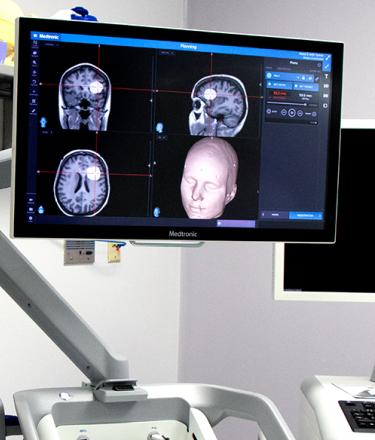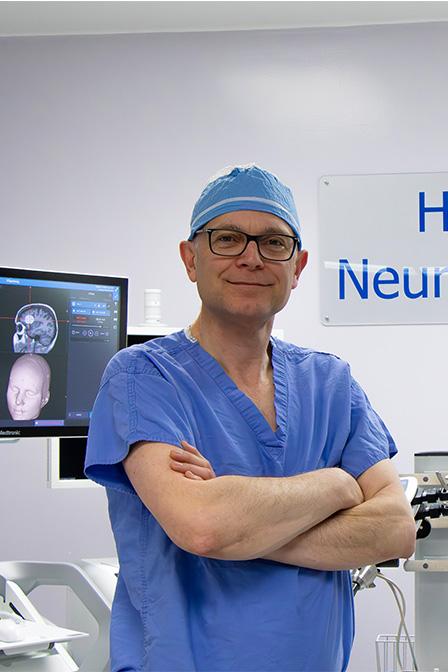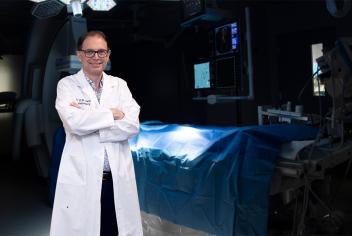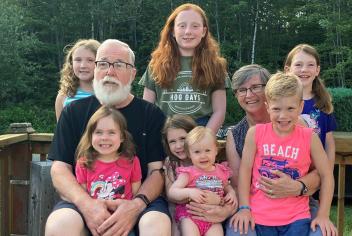-

Neuro Robot
Precise, faster, safer surgical care for epilepsy
As part of our We Are campaign, the ROSA One Brain System arrived at the QEII in 2024, fully funded by the generosity of the late Clarence and Marjorie Anderson.

The use of this neurosurgical robot will mean more people will have surgeries. It will be done in a safer way. It will increase our ability to positively alter the lives of many patients. This generosity will absolutely change lives.
For patients undergoing surgery for epilepsy, the traditional approach involves manually inserting electrodes deep into the brain to monitor brain activity. This process involves extensive planning to minimize damage to sensitive structures like blood vessels.
Previously, QEII neurosurgeons spent several hours preparing for this specific surgery using stealth planning stations that generous QEII Foundation donors previously funded.
Now, the introduction of the ROSA One Brain System is revolutionizing surgical care. This state-of-the-art neurosurgical robot integrates seamlessly with existing stealth planning stations, significantly enhancing precision, reducing surgical time, and minimizing risks.
Dr. Clarke shares that the ROSA One Brain System can cut operating room time for these procedures by 30 to 40 per cent. Shorter surgeries mean more patients can receive care sooner. At the QEII, this translates to about 50 to 60 patients annually, offering them access to faster, safer, and potentially life-changing treatment.
This breakthrough in surgical care highlights how innovative technology, powered by donor support, is transforming care in our province through our We Are campaign.

